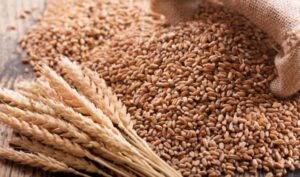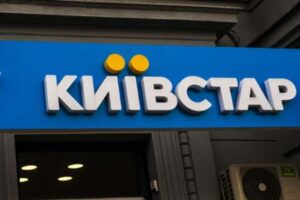
In January-July of this year, Ukraine increased imports of coke and semi-coke in physical terms by 6.1% compared to the same period last year, to 364,669 thousand tons from 343,678 thousand tons.
According to statistics released by the State Customs Service (SCS) on Tuesday, imports of coke in monetary terms decreased by 2.8% during this period, to $121.049 million.
It was mainly imported from Poland (89.62% of supplies in monetary terms), Indonesia (7.90%), and the Czech Republic (2.45%).
During the period in question, Ukraine exported 3 tons of coke worth $2,000 to Albania.
As reported, Metinvest suspended the operations of the Pokrovsk Coal Group in January this year due to changes in the situation on the front line, electricity shortages, and the deterioration of the security situation.
Last year, Ukraine increased its imports of coke and semi-coke in physical terms by 2.01 times compared to 2023, to 661,487 thousand tons, importing it mainly from Poland (84.76% of supplies in monetary terms), Colombia (7.74%), and Hungary (2.69%). In monetary terms, imports increased by 81.9% to $235.475 million.
In 2024, the country exported 1,601 thousand tons of coke worth $368 thousand to Moldova (99.18%) and Latvia (0.82%), while in January, March, October, and November 2024, there were no exports, and in 2023, exports amounted to 3,383 tons worth $787 thousand.

Varus.ua’s turnover through Nova Poshta delivery in the first half of 2025 increased by 1.61 times compared to the same period in 2024, and the supermarket chain’s revenue increased by 18.1%, according to the chain’s press service.
“The online segment showed strong results in the first half of 2025. The market share and turnover of the Varus.ua conscious shopping service doubled compared to the same period last year,” said Oleg Spirin, e-commerce director at Varus.ua.
The frequency of purchases on Varus.ua grew by 10%, and the average check by 15%.
It is noted that in the first half of the year, the number of website users increased by 20%, and app users by 90%.
According to the company, the turnover of the Varus supermarket chain grew by 18.1% compared to the first half of 2024. Three new stores were opened: one in Odesa and two in Kyiv. One of the capital’s supermarkets was implemented in the Varus Home “near home” format, which became the second facility of this format in the chain.
The total number of Varus supermarkets is 115.
In 2025, Varus will launch four new brands. Currently, the chain has 14 private labels, according to a press release. Private labels account for 10.5% of the chain’s total turnover.
In the first half of the year, Varus hired 2,009 new employees. According to the press service, in July, young people aged 17 and older accounted for 7% of the total number of new employees.
According to a press release, in July, Varus received the first tranche of a loan from the European Bank for Reconstruction and Development—almost UAH 630 million out of a total loan amount of over UAH 1 billion. The remaining funds will be received by the end of the year as part of a UAH 2.2 billion food security project.
“The funds received will be used to expand the network, increase business resilience, and implement energy-efficient solutions as part of the Green Economy Transition (GET) approach. Varus plans to install solar panels, modernize lighting, introduce reversible split air conditioning systems, and develop stable logistics,” the company said, noting that solar power systems have already been installed at 21 supermarkets in the chain.
Varus is a national supermarket chain represented on the Ukrainian grocery retail market by Omega. The first store in the chain was opened in 2003 in Dnipro, and there are now 115 supermarkets in various cities across Ukraine and a DarkStore in Kyiv. The chain operates in several formats: classic supermarkets, To Go stores, and the Varus.ua online store.
According to Opendatabot, the owner of Omega LLC is the Cypriot company Veigant Enterprises Limited. The ultimate beneficiaries are listed as Valery Kiptik and Ruslan Shostak.
According to the company’s financial results for 2024, its revenue increased by 14.3% compared to the previous year, to UAH 20 billion. Net profit decreased by 80.9% to UAH 38.2 million.

The IMK agricultural holding has completed its wheat harvest and threshed 153,000 tons of grain from 20,700 hectares, the holding’s press service reported on Facebook.
The company noted that in the 2025 season, the average wheat yield was 7.4 tons/ha, which is a record for all 18 years of the company’s operations and exceeded the average wheat yield in Ukraine by 71%. IMK referred to data from the Ministry of Economy, according to which as of August 14, 2025, the average wheat yield in Ukraine was 4.32 tons/ha.
“This season has shown that true professionalism is measured not only by equipment and technology, but also by the ability of the team to work cohesively in the most difficult conditions. We managed not only to maintain stability, but also to once again break the yield record with 7.4 tons per hectare,” said Bogdan Kryvitsky, IMK’s chief operating officer.
He thanked the employees of the Sumy cluster, who achieved a yield of 8.5 tons per hectare.
IMK is an integrated group of companies operating in the Sumy, Poltava, and Chernihiv regions (northern and central Ukraine) in the crop production, elevators, and warehousing segments. The land bank is 116,000 hectares, storage capacity is 554,000 tons, and the 2024 harvest is expected to be 864,000 tons.
IMK ended 2024 with a net profit of $54.54 million, compared to a net loss of $21.03 million in 2023. Revenue increased by 52% to $211.29 million, gross profit quadrupled to $109.10 million, and normalized EBITDA increased 25-fold to $86.11 million.

Agro-Region agricultural holding has completed the harvest of winter crops with yields exceeding the planned targets and the average yield for the last five years, the holding’s press service reported on Facebook.
According to the report, the agricultural holding threshed more than 12.5 thousand hectares, with an average yield of winter wheat across the group of companies at 6.3 tons/ha and winter rapeseed at 3.23 tons/ha. At the same time, three clusters achieved an average winter wheat yield of over 7.5 tons/ha.
“The end of the growing season for winter wheat and the filling period were favorable, as a result of which a yield of 9-9.5 tons/ha was achieved on a significant number of fields,” said Chief Agronomist Yuriy Lysak.
At the same time, the Western cluster had the highest yield of winter rapeseed — 3.71 tons/ha.
“The rapeseed crops were damaged by frost, and the crop needed time to recover. Overall, the year was cooler than last year, so we started threshing later,” Lysak added.
Agro-Region specified that in the 2025 season, the harvest started two weeks later due to weather conditions. All of the company’s clusters made maximum use of their own equipment, which has been updated in recent years.
Agro-Region has a land bank of 39,000 hectares in the Kyiv, Chernihiv, Zhytomyr, and Khmelnytskyi regions. It specializes in crop production. It comprises 11 companies grouped into four crop clusters. It has two elevators: one in Boryspil with a capacity of 73,000 tons and one in Myropil with a capacity of 52,000 tons.
Agro-Region’s annual harvest of grain and oilseeds is 200,000 tons.
In April 2021, the Swedish company Lobiu Sala AB, owned by former Ukrainian Minister of Economy Aivaras Abromavičius, received permission from the Antimonopoly Committee of Ukraine to purchase the Swedish company Agro Region Stockholm Holding, which manages the Agro-Region group of companies in Ukraine.

Kyivstar Group Ltd. (Nasdaq: KYIV, “Kyivstar”) increased its net profit in the second quarter of 2025 by 18.6% compared to the same period in 2024, to 3.4 billion hryvnia, the company reported in its SEC filing.
“Kyivstar Group continues to demonstrate the resilience and strength of our digital operator strategy, delivering significant revenue growth and high profitability. This quarter’s results demonstrate our ability to deliver stable financial performance while expanding our digital ecosystem,” said Alexander Komarov, CEO of Kyivstar Group.
It is added that net profit in dollars increased by 13.9% to $82 million.
According to the report, Kyivstar Group’s operating revenue in the second quarter increased by 25.9% to UAH 11.86 billion, and adjusted EBITDA increased by 23.6% to UAH 6.8 billion.
In dollars, revenue grew by 20.9% to $284 million, EBITDA by 18.7% to $165 million, of which $21.7 million was revenue from Uklon, which was consolidated in the report for the first time.
Kyivstar Group Ltd announced on August 15 the completion of its listing on the Nasdaq stock exchange. The share of the parent company VEON after the merger with SPAC decreased from 100% to 89.6%, while the deal provided $178 million in proceeds.
Kyivstar serves nearly 23 million mobile subscribers and over 1.1 million home internet subscribers. Its digital services portfolio includes the Helsi medical platform, the Kyivstar TV movie and television platform, and Uklon, a leading ride-hailing and delivery company. Kyivstar is also a provider of solutions for corporate clients, offering cloud technology, cyber security, and artificial intelligence services. Through its Kyivstar.Tech division, the company is developing software development in Ukraine and is a partner for international technology companies such as Starlink.